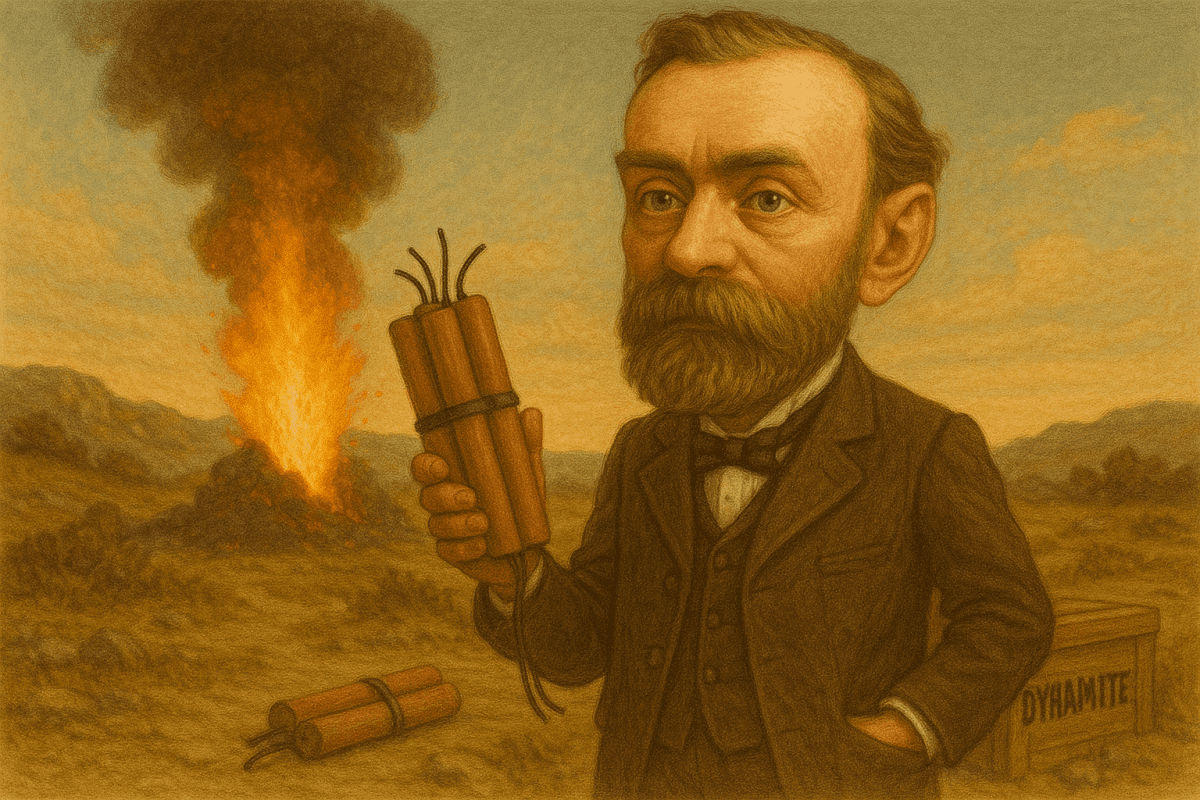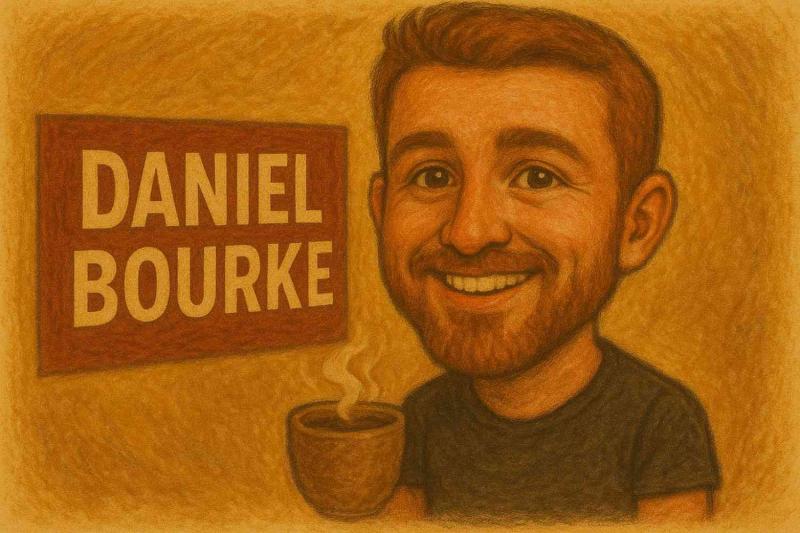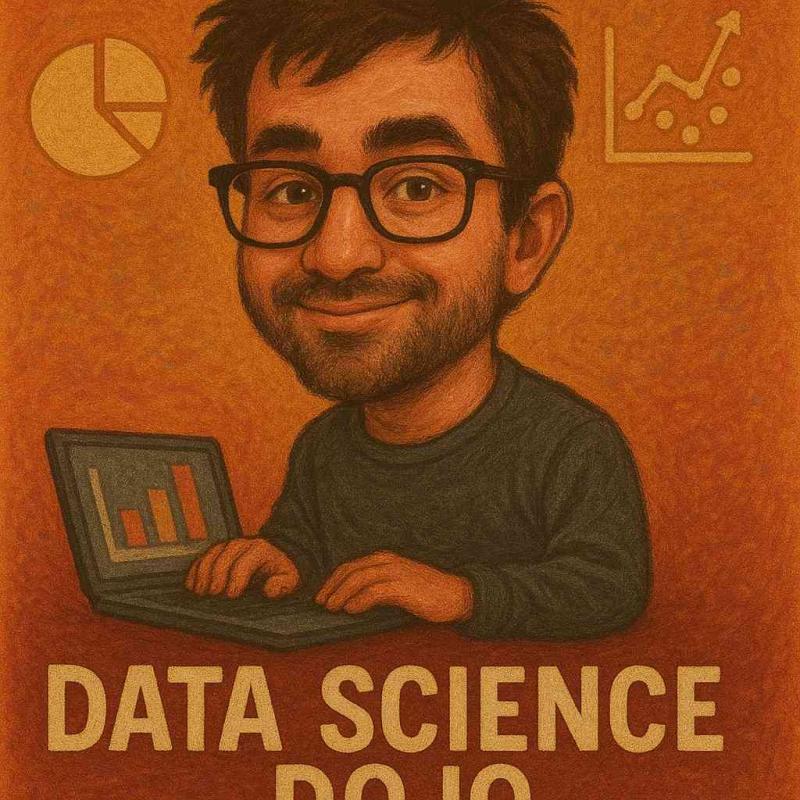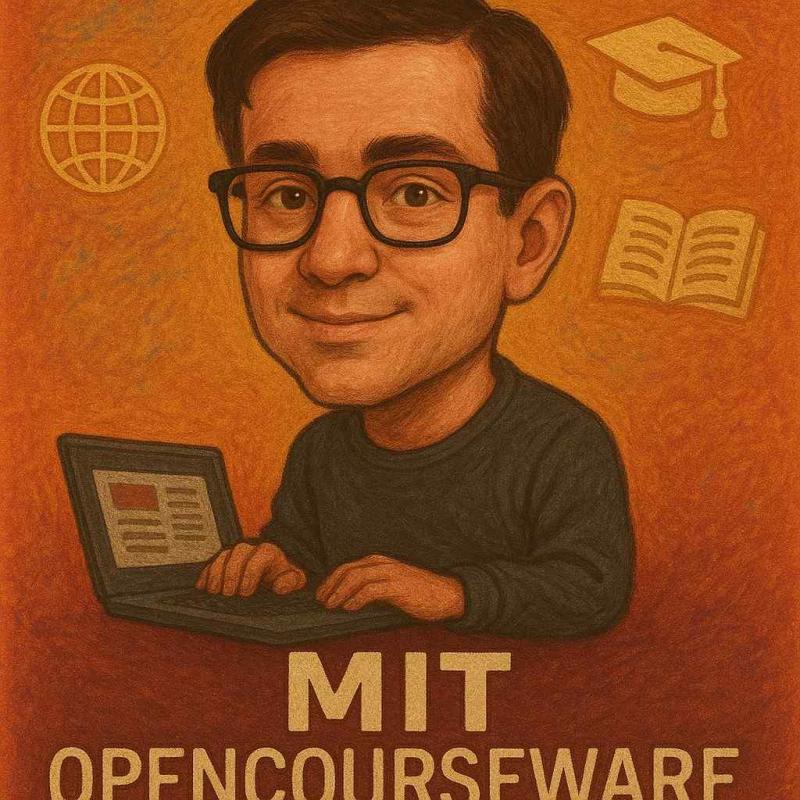Alfred Nobel: How a Merchant of Death Became a Champion of Peace
Ever wondered how someone who invented one of the world's most destructive tools ended up creating the most prestigious peace prize? Alfred Nobel's story is the ultimate redemption arc – from being called a "merchant of death" to becoming synonymous with humanity's highest achievements. Talk about a career pivot!
The Reluctant Explosives Kingpin
Born in Stockholm in 1833, Alfred Nobel wasn't exactly your average kid. While most children were out playing, young Alfred was getting homeschooled and becoming fluent in five languages. His father, Immanuel Nobel, was an inventor and engineer who had a thing for explosives. Like father, like son, I guess.
After the family business went belly-up in Sweden, they moved to Russia where Papa Nobel found success making weapons during the Crimean War. Alfred eventually returned to Sweden and began experimenting with nitroglycerine – basically playing with literal fire. This wasn't just a dangerous hobby; it was downright deadly.
In 1864, disaster struck when an explosion at Nobel's factory killed several people, including his younger brother Emil. Can you imagine carrying that kind of guilt? Most people would've walked away from explosives altogether, but Nobel? He doubled down and got even more determined to create something safer.
The Dynamite Guy
Nobel's big breakthrough came in 1867 when he discovered that mixing nitroglycerine with diatomaceous earth (a fancy name for fossilized algae, believe it or not) created a paste that could be shaped into sticks. He called it "dynamite" from the Greek word for power – "dynamis."
This invention changed EVERYTHING:
- Mining became significantly more efficient
- Railway construction could blast through mountains
- Canal building accelerated worldwide
- Military operations got a new deadly tool
Nobel wasn't just smart about explosions; he was smart about business too. He patented dynamite immediately and went on to establish companies in 20 different countries. The man collected patents like some people collect stamps – 355 in total! By the time he died, he had amassed a fortune worth about $250 million in today's money. Not too shabby for a guy who played with explosives for a living.
The Wake-Up Call: Reading Your Own Obituary
Here's where things get weird. In 1888, Alfred's brother Ludvig died while visiting Cannes. But a French newspaper got confused and thought it was Alfred who had died. They published his obituary with the now-famous headline: "The merchant of death is dead."
The obituary went on to say, "Dr. Alfred Nobel, who became rich by finding ways to kill more people faster than ever before, died yesterday."
Imagine reading your own obituary! And not just any obituary – one that basically calls you history's greatest monster. That's gotta sting :/
This premature obituary hit Nobel hard. Is this really how the world would remember him? As someone who made killing easier? That's when something clicked. He decided he needed to change his legacy, and FAST.
The Nobel Prize: A Legacy Makeover
In 1895, Nobel signed his third and final will, which set aside the bulk of his estate to establish the Nobel Prizes. When he died a year later in 1896, many were shocked to discover what he'd done. He left 94% of his total assets (about $186 million in today's money) to establish five prizes for those who "conferred the greatest benefit to mankind."
The original Nobel Prizes were in:
- Physics
- Chemistry
- Physiology or Medicine
- Literature
- Peace
Later, in 1968, the Sveriges Riksbank (Sweden's central bank) established the Prize in Economic Sciences in Memory of Alfred Nobel.
Nobel's family was NOT happy about this. They fought to invalidate the will, but thankfully, they failed. The first Nobel Prizes were awarded in 1901, and they've been celebrating human achievement ever since.
The Irony of the Peace Prize
Let's talk about the elephant in the room – there's something distinctly ironic about a guy who invented dynamite creating a peace prize. It's like if the inventor of cigarettes established an award for advances in lung health.
But maybe that's exactly what makes Nobel's story so compelling. He saw what his legacy was shaping up to be, and he made a deliberate choice to change it. In his will, he specifically stated that the Peace Prize should go to the person who "shall have done the most or the best work for fraternity between nations, for the abolition or reduction of standing armies, and for the holding and promotion of peace congresses."
The man who gave the world more efficient ways to blow things up wanted his money to promote peace. If that's not character development, I don't know what is.
Beyond Dynamite: The Man Behind the Myth
What many people don't realize is that Nobel was way more than just "the dynamite guy." He was a complex dude with varied interests:
- He was a writer who penned poetry and drama, including the play "Nemesis"
- He was perpetually lonely and never married (though he did have a thing with a flower girl named Sofie Hess)
- He suffered from chronic illness and self-medicated with nitroglycerin for his heart problems (yes, the same stuff in dynamite!)
- He was fluent in Swedish, Russian, French, English, and German
- He was an advocate for women's rights (quite progressive for his time)
In his personal correspondence, Nobel comes across as a thoughtful, if melancholy, man who worried about the impact of his inventions. In one letter, he wrote: "I wish I could produce a substance or a machine of such terrible destructive power that war would become impossible forever."
Nobel's Legacy Today
Today, the Nobel Prize is arguably the most prestigious award on the planet. When you win a Nobel, you've basically peaked – there's nowhere higher to go. Past winners include Marie Curie, Albert Einstein, Martin Luther King Jr., and Malala Yousafzai.
The prize money ain't bad either. As of 2023, each Nobel Prize comes with about $1 million. Not a bad payday for making the world a better place!
The Nobel Foundation has had its controversies over the years (hello, Henry Kissinger winning the Peace Prize), but it remains one of the most influential forces for recognizing human achievement.
Final Thoughts
Alfred Nobel's transformation from the inventor of dynamite to the founder of the Nobel Prizes shows that it's never too late to change your legacy. He looked at how the world would remember him and said, "Nah, I can do better."
IMO, there's something profoundly hopeful about Nobel's story. It reminds us that our technologies – even the destructive ones – don't have to define us. We get to choose what we do with our influence, our money, and our name.
So next time you hear about the Nobel Peace Prize, remember the complicated man behind it – an inventor who built a fortune on explosives but used that fortune to celebrate humanity's highest achievements. Now that's what I call going out with a bang!



